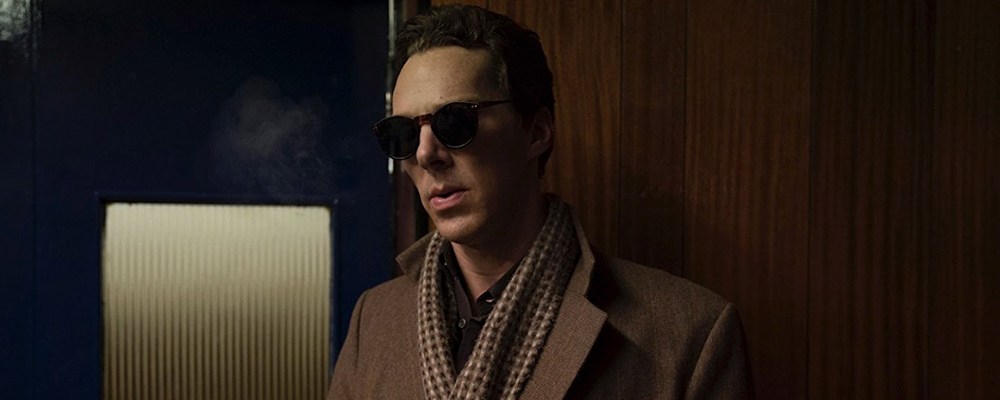Benedict Cumberbatch Becomes a Portrait of Addiction in Showtime’s ‘Patrick Melrose’
Alci Rengifo
What a terrible fate to have been raised by monsters. The five-part Showtime miniseries “Patrick Melrose” is a scorching portrait of a wealthy man trapped by his addictions, and forever scarred by a terrifying childhood. This series is a kind of emotional map charting how the road to being an addict can begin early on, not so much with drugs but with the kind of experiences that lead to a desperate need for escape. Based on the cult novels of Edward St Aubyn, this show is full of such raw, blunt pain that it is little surprise Aubyn’s books are semi-biographical.
We begin in 1982, as an upper class Englishman named Patrick Melrose (Benedict Cumberbatch) receives a call from New York informing him that his father, David (Hugo Weaving) has died. A near-suicidal drug addict, hopped up on everything you can imagine, Patrick is almost delighted to know the elder Melrose has expired. He flies to New York to recover his father’s body and immediately goes on a monster bender. For him money is truly no hassle, he simply throws wads of cash around like candy, even when wandering the city’s rougher corners trying to score. As he ponders how much longer he can go on as an addict, Melrose also begins to remember his childhood. It was a traumatizing upbringing under the shadow of a bestial, abusive father and weak, heiress alcoholic mother named Eleanor (Jennifer Jason Leigh). A young Patrick (played by Sebastian Maltz) could only watch as his father, a failed musician, emotionally abused anyone he perceived as a bore or weak, while channeling his own bitterness at being a failure at his son, first with violence, soon with sexual abuse. Melrose must face his past as he tries to become clean in the present.
“Patrick Melrose” is not particularly pleasant television, but it is never less than harrowing. It is filmed with a gothic elegance, expressing the opulence that masks personal terrors. The first episode, “Bad News,” is a full portrait of bourgeoisie decay as Melrose stays in a luxurious hotel, stuffing generous tips all around, buying only the best meals and drinks. But he’s a complete implosion and soon his expensive suite looks like the aftermath of a hurricane. He repeats terms and phrases that are like shallow little slogans (“only the best”). Yet there is contempt in his voice, and sad memories intrude in his thoughts. Edward St. Aubyn was himself a product of the British aristocracy, and the show preserves his novels’ fine ear for the refined manners and cosmetic behaviors of the elite, and the way it can contrast with cataclysmic behavior. In one darkly funny scene Patrick meets with an old family friend, Anne (Indira Varma) to discuss his father’s death. Just then a Quaalude kicks in and he becomes a crawling mess. Yet the humor is slight, what we are seeing is a person in freefall. This show doesn’t shy away from needles puncturing veins and the grotesque nature of drug abuse becomes a visceral feature of its technique.
But “Patrick Melrose” is riveting because it isn’t simply a close up of addiction. It is a drama of dark depths and human frailty. One of the best episodes in the miniseries is the second one, “Never Mind.” It takes place in 1967 as Melrose’s parents host a small get together with two pairs of friends in a French estate. Directed meticulously by Edward Berger, it is a startling microcosm of a toxic family and its acidic effect on others. David snarls at Patrick, he terrifies the help and relishes in showing off his force of ego by humiliating Eleanor in front of everyone. He abuses David because his ethos is based on the idea that torture makes you strong. Only Anne, mocked for being a “lefty” American, has the courage to call David what he is to his face. It so happens she is reading “The Twelve Caesars” by Suetonius, an ancient chronicle of men who used power as an excuse to exercise terror. Everyone else either cowers or is a sycophant like fellow snob Nicholas Pratt (brilliantly played by “The Crown’s” Pip Torrens), who brings his younger, flirtatious girlfriend Bridget (Holliday Grainger). We are trapped for an hour with these people, but their characters are so sharply defined and performed that it is one of the best, most disturbing chapters on television you will see this season. Hugo Weaving is a quiet, morbid creature while Jennifer Jason Leigh is a tragic victim of her own frailty, worthy of a Tennessee Williams play.
The powerhouse in the show is Cumberbatch, who must conjure powerful feelings while displaying the physical toll of addiction. His character is a man of refinement, yet falling apart. There are moments where he quite simply loses his mind, hearing voices, flooding a hotel tub, awakening to find himself with a black eye. Yet Cumberbatch never makes the role seem whacky, he becomes a man who can afford to go to these lengths with his indulgences, not out of pure decadence, but because he hates himself. In “Bad News” there is a pathetic moment where he meets an old college acquaintance and immediately gets awkward with her as a cry for help. But because the show begins as such a high-octane cocktail of loss and substance abuse, the later moments where Melrose seeks to break from drugs become more harrowing. The double drama here is that he can’t beat his addiction until he comes to terms with his past.
Out of the recent slew of TV series dealing with the ways of the rich and powerful, “Patrick Melrose” is the darkest but also the most meaningful. It isn’t sensationalist, but instead a portrait of real pain and the power of scarring memories. This miniseries understands how you don’t know where someone is going unless you know where they’ve been.
“Patrick Melrose” premieres May 12 at 9 p.m. ET and airs Saturdays on Showtime.




